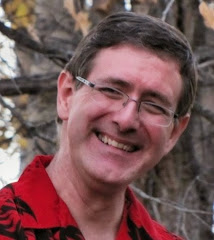Have you ever asked yourself if it’s okay to argue with
God? Some folks don’t like thinking
about God because they take every bad thing that ever happens in the world and
either blame God for it or decide it’s proof that God does not exist. Some folks take misfortunes like their
daughter’s ill health or their disabilities as a test of their obedience. But sometimes I think it is quite okay to
argue with God, to challenge what we think God has or has not done.
We see Jesus getting challenged. He wanted to get away and have a vacation
where he wouldn’t be recognized. Like
Angelina Jolie or Brad Pitt putting on sunglasses or Benedict Cumberbatch
sporting an ugly beard, Jesus thought he could go off and relax deep in the
heart of gentile territory, modern day Lebanon.
He got called out by the Syrophoenician woman, who refused to take no
for an answer, who refused to be treated with racist and sexist comments. Despite her ancestors being at war with
Jesus’ ancestors for generations, because let’s not forget that Goliath was a Philistine
and Phoenician who was killed by David, one of Jesus’ ancestors, this lady was
not going to take no for an answer.
Despite the cultural animosity between their two peoples, she was going
to challenge Jesus until he could see things her way. And he shifted his opinion. He realized that God’s love is not limited to
one race, to one faith, to one culture.
He took that learning into his next teaching stop, the Decapolis. Opening a man’s ability to speak was similarly
dramatic and like a cork popped on a genie’s bottle, the good news of that
healing could not be contained or silenced.
Good news spilled out wherever he went.
James also was letting the good news spill out. He spoke out against favoritism, reminding everyone
that they were beloved regardless of their income level, how much they could
throw in the collection plate, how famous they were or how they dressed. And
that just praying for folks in difficulty is not enough. Like recent gun control advocates in the
states remarked, there comes a time when we have to stop praying for the
victims of mass shootings and start challenging the NRA. Start boycotting companies and organizations
that profit from the manufacturing of tools meant to hunt humans. Hurt them in their pocket books. Something that even we Canadians can take
part in.
But I like to argue with James. Just as Paul argued with him, and Martin
Luther argued with him. James thought
it’s all about our actions and deeds.
Paul thought it was all about grace.
This is one of the oldest arguments in our Christian faith, and it is
not easy. Which comes first, faith or
action? Or in academic words, praxis or
prayer? And why does one answer have to
be the right answer? Some people come to
faith first and then learn to act from a faith perspective, some practise
acting like they have faith before they have it. Do we have to say that either way is better
than the other? Do we have to demonize
all wealthy people like the Koch brothers who support libertarian organizations
in the states, or can we remember folks like Jimmy Carter who is also a wealthy
man and who came to Edmonton at the age of 92 to work on a Habitat for Humanity
build? Or the millionaires who helped
fund The Ocean Cleanup, which has raised $35
million US in donations to fund the project, including from wealthy folks like PayPal
co-founder Peter Thiel.
Christianity is at its best, I think, when we argue with
the scriptures and with our teachings.
Augustine argued with the folks who taught him about Plato.
He argued with the people who wanted to take every story in
the Bible literally, saying that sometimes it is clear that the bible stories,
even the ones about Jesus, needed to be looked at as metaphors. And scholars have argued with him too, on
concepts like just wars and his sense of sexuality, which was much healthier
when he was living with his concubine and son.
We argue. It’s healthy. But as James reminded us, if we are going to
argue, it must be done in a spirit of love.
We must remember to love our neighbors as we love ourselves. If we argue, let it be done with a higher
purpose in mind, whether it’s to develop a deeper sense of our relationship
with God, or to develop an action plan to address an injustice.
Why is this important?
I heard two different rumors this week that were very disturbing. One person claimed that all Subways stores were
being forced to get rid of their ham and bacon due to pressures from
Muslims. Another told me that Christian
churches are being burned down around the world by Muslims. Both of these are patently false, planted to
foster fear and suspicion. True, some
Subways in predominantly Muslim neighborhoods have chosen to see what their
customers would buy, but that’s a few places in England. Lest you say they should leave their food
culture at home, where would we be without dim sum, pizza and cabbage rolls? And true some churches in the Middle East
have been burned by Muslim extremists, but they are destroying museums and
archeological sites, not just churches.
And in Egypt, Muslims often surround Christian churches to protect their
friends so they can worship in peace.
And the Koran says that Hallal meat can be blessed by people of the book
if no Imam is present. Who is a person
of the book? That’s how they describe
Christians and Jews.
In the end, we are called to be both healed and
healers. The call comes from God, and we
do need to argue with that call to make sure it is indeed God’s voice calling
and not our own egos or need for power and control. We are called to take the time we need to be
centered and grounded in God’s word, in prayer and in community. We are also called to do what we can to heal
the injustices we see around us.

